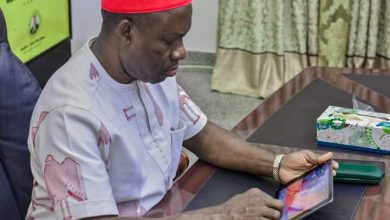
By Tony Okafor
The recent expulsion of Miss Goddy-Mbakwe Chimamaka Precious from Nnamdi Azikiwe University (UNIZIK) has sparked widespread debate about the severity of the punishment.
The incident, which involved an altercation between the student and a lecturer, Dr. Chukwudi Okoye, raises important questions about the university’s approach to discipline and student affairs.
Punishment should serve as a corrective measure, aiming to reform and educate, rather than destroy.
Expulsion, in this case, seems like an extreme measure, one that may have long-lasting, detrimental effects on the student’s future.
As a moulding institution, UNIZIK should strive to provide guidance and support, rather than resorting to draconian measures that can be career-killing.
A closer examination of the incident reveals a complex situation, with both parties potentially at fault.
While Miss Goddy-Mbakwe’s actions may be unacceptable in our clime, it is also essential to acknowledge the argument that the lecturer’s first touch on the female student without her consent constitutes assault.
This perspective highlights the need for a more thoughtful and multidisciplinary approach to addressing the situation.
In light of this, it would be ideal for Miss Goddy-Mbakwe to undergo rehabilitation through the expertise of the Psychology Department at UNIZIK.
This would provide her with the necessary tools and guidance to understand and manage her emotions, develop healthier coping mechanisms, and cultivate more constructive ways to interact with authority figures.
Furthermore, the university should consider providing training for lecturers on maintaining healthy boundaries and fostering positive student-lecturer relationships, as well as promoting cultural sensitivity and awareness to prevent imperialistic attitudes and behaviours.
It is also important to note that Miss Goddy-Mbakwe’s case should not be exploited as an opportunity for personal gain or promotion.
The university’s actions should be guided by a genuine concern for the student’s well-being and growth, rather than a desire for self-promotion or political posturing.
By adopting a more rehabilitative approach, UNIZIK can demonstrate its commitment to the well-being and growth of its students, rather than simply punishing them.
We urge the authorities at UNIZIK to reconsider their decision and explore more constructive ways to address the situation, ensuring that Miss Goddy-Mbakwe is given a chance to learn from her mistakes and continue her academic journey.
The university’s decision to expel Miss Goddy-Mbakwe may have been intended to send a strong message about the importance of discipline, but it ultimately undermines the university’s role as a nurturing and supportive environment.
Instead, UNIZIK should focus on providing a safe and inclusive space for all students to learn and grow.
Ultimately, the goal of discipline should be to educate and reform, rather than to punish and exclude.
By taking a more holistic and rehabilitative approach, UNIZIK can promote a safer, more supportive learning environment for all students, and help Miss Goddy-Mbakwe to learn from her mistakes and reach her full potential.
Don’t throw the baby out with the bathwater



